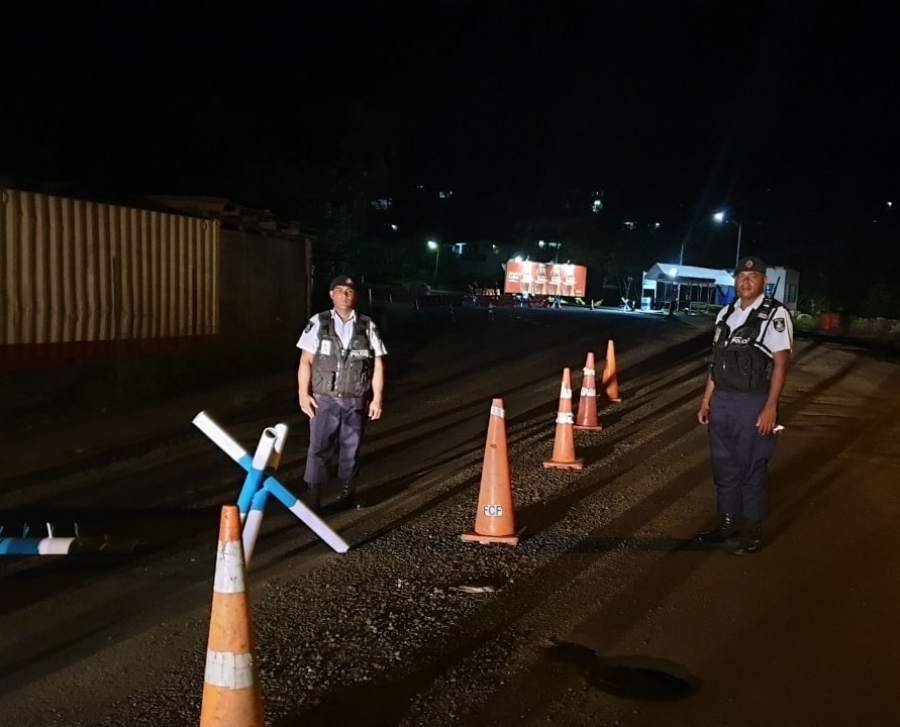Covid-19 cases increase in Fiji
Thursday 16 April 2020 | Written by Losirene Lacanivalu | Published in Small World

Curfew continues in Fiji
Prime Minister Voreqe Bainimarama has declared Fiji’s second State of Natural Disaster after confirming the country’s 17th case of Covid-19.
Bainimarama said: “Our first 16 patients living with coronavirus are all in stable condition. Yesterday, after testing ten samples we recorded no new positive cases of coronavirus.
“However, one of our 25 tested samples returned positive –– that of a 21-year-old man in Vanua Levu.”
He said the gentleman is a relative and travelling companion of case nine; they travelled together from India to Singapore and on to Fiji.
READ MORE:
* One big bubble: Loosening Covid constraints
* Derek Fox: Saving lives with soap and water
* Quarantine Quiz: Chips, ships and planes
Bainimarama also announced the lockdown in Suva will be lifted on Friday after the number of people screened in the capital reached more than 200,000.
But he said all other restrictions remained in force, such as the nationwide curfew, nightclubs, gyms, cinemas, pools stay closed.
Public gatherings are not permitted. Physical distancing of two metres from all others should be maintained at all times.
“The end of the lockdown is not cause for celebration. It is not a reason to have large grog sessions or drinking parties. It is not a justification to stay out past 8pm. It is not an excuse to leave your homes for no good reason,” he said.
Mr Bainimarama said since the young man's return to Fiji, he did not show symptoms of the virus.
He said the man had been in self-quarantine for two full weeks, up until 5 April.
Fiji has also moved to extend its quarantine period from 14 days to 28 days.
Mr Bainimarama said this included anyone newly-quarantined and to those who were waiting out their initial 14-day period.
In the western part of Fiji, he said Fijians who have returned from overseas remained under closely supervised quarantine.
A flight is arriving today from Auckland –– every passenger aboard will head straight to one of these facilities.
“As I said earlier, the period of quarantine is now 28 days. If you’ve already been released from quarantine after returning from overseas, prepare for a visit from health officials.”
School closure in Fiji extended due to covid-19
Fiji’s Ministry of Education confirmed that school closure due to COVID-19 has been further extended until June 13.
Minister Rosy Akbar says this is keeping in mind the welfare and safety of children who are vulnerable during this crisis.
Classes are expected to resume on June 16, 2020.
Teachers are to report to school where possible from Monday April 20, to facilitate teaching materials for home-based educational activities.
“We understand that these are not normal times and there are a number of factors such as damages to facilities and travel restrictions. Where teachers cannot physically report to their schools, they can liaise with their Heads of School and work from home.
“Heads of School and teachers need to utilise this time for professional advancement and development of supportive learning resources for children who remain at home”.
She said that parents who do not have access to online supplementary resources will have access to resource materials from respective schools from May 4.
Heads of School will facilitate this arrangement for their students. However, parents are encouraged to continue accessing supplementary resources available on our Website, Google Shared Drive, FEMIS, Facebook and the ongoing radio programmes on Radio Fiji One and Radio Fiji Two to keep their children engaged during these trying times.
All English, Vernacular and Test Subject project work that formed the basis of internal assessment has been removed this academic year due to movement restrictions. When schools resume for classes, Internal Examination will be conducted for Years 1 to 8 Literacy and Numeracy Assessment for Year 5 and 7, Standard Examination for Years 9 to 11 and External Examination for Years 12 and 13.
Akbar stresses that these are extraordinary times and parental guidance, supervision and monitoring of children is paramount.










































